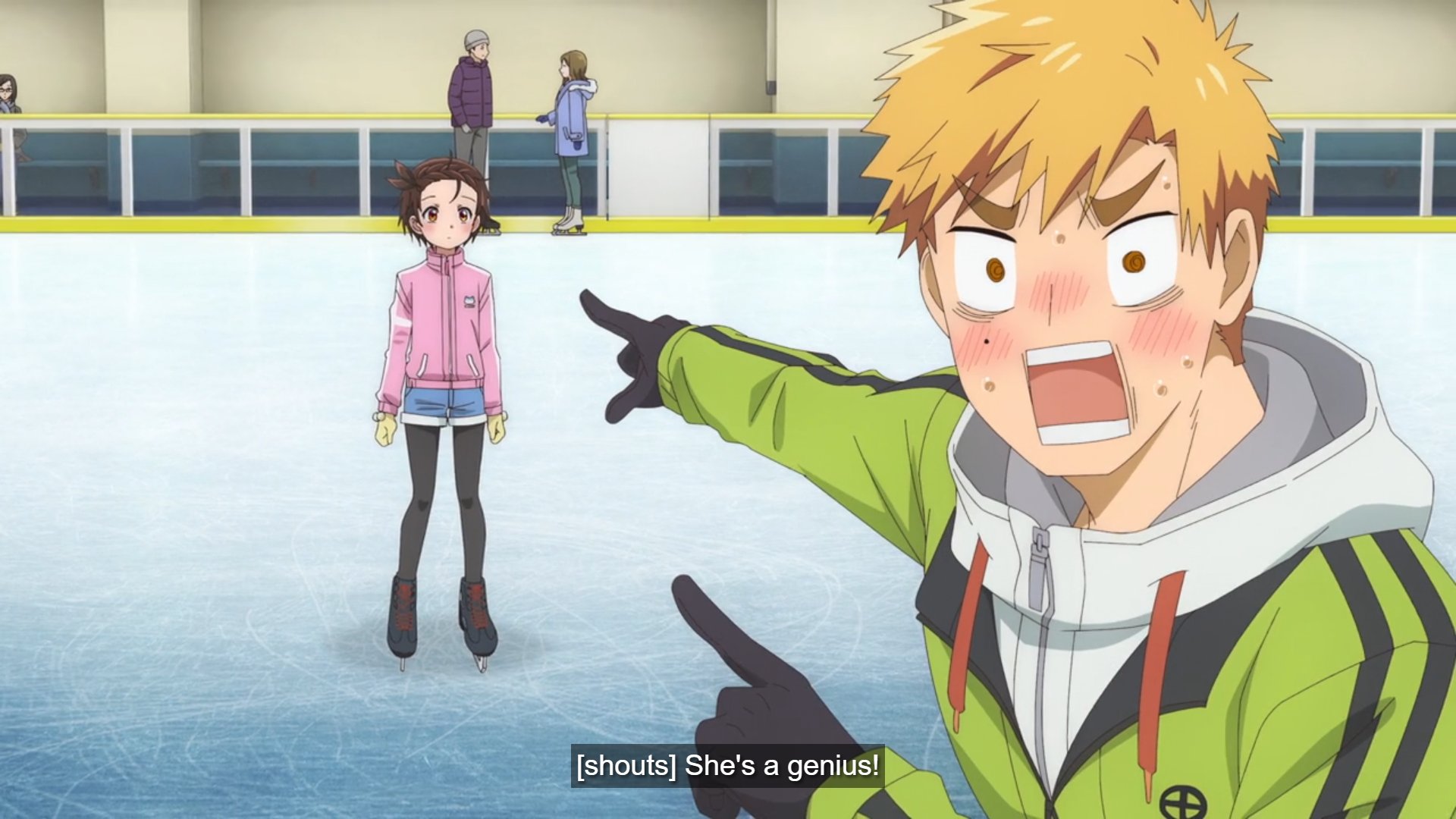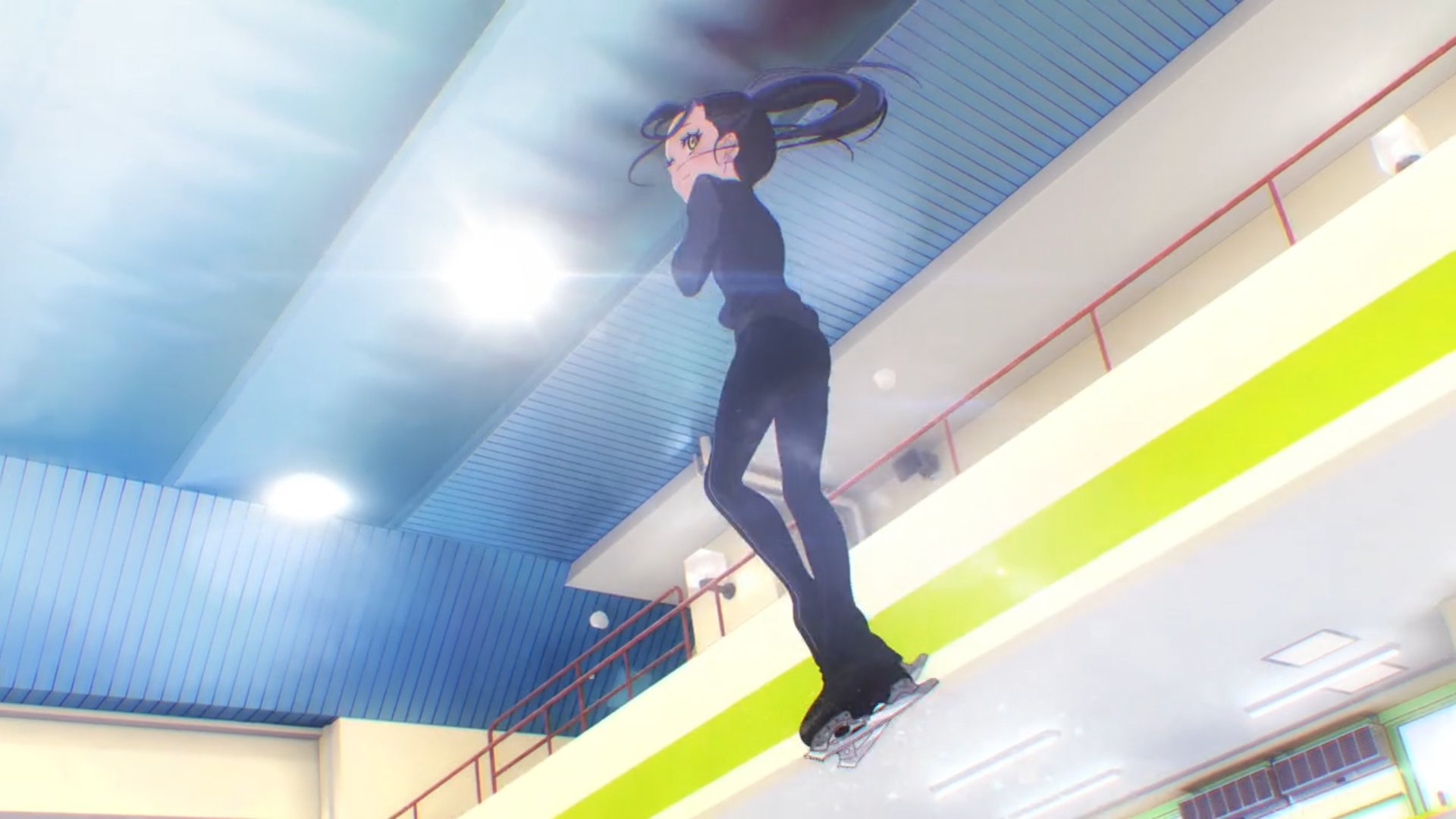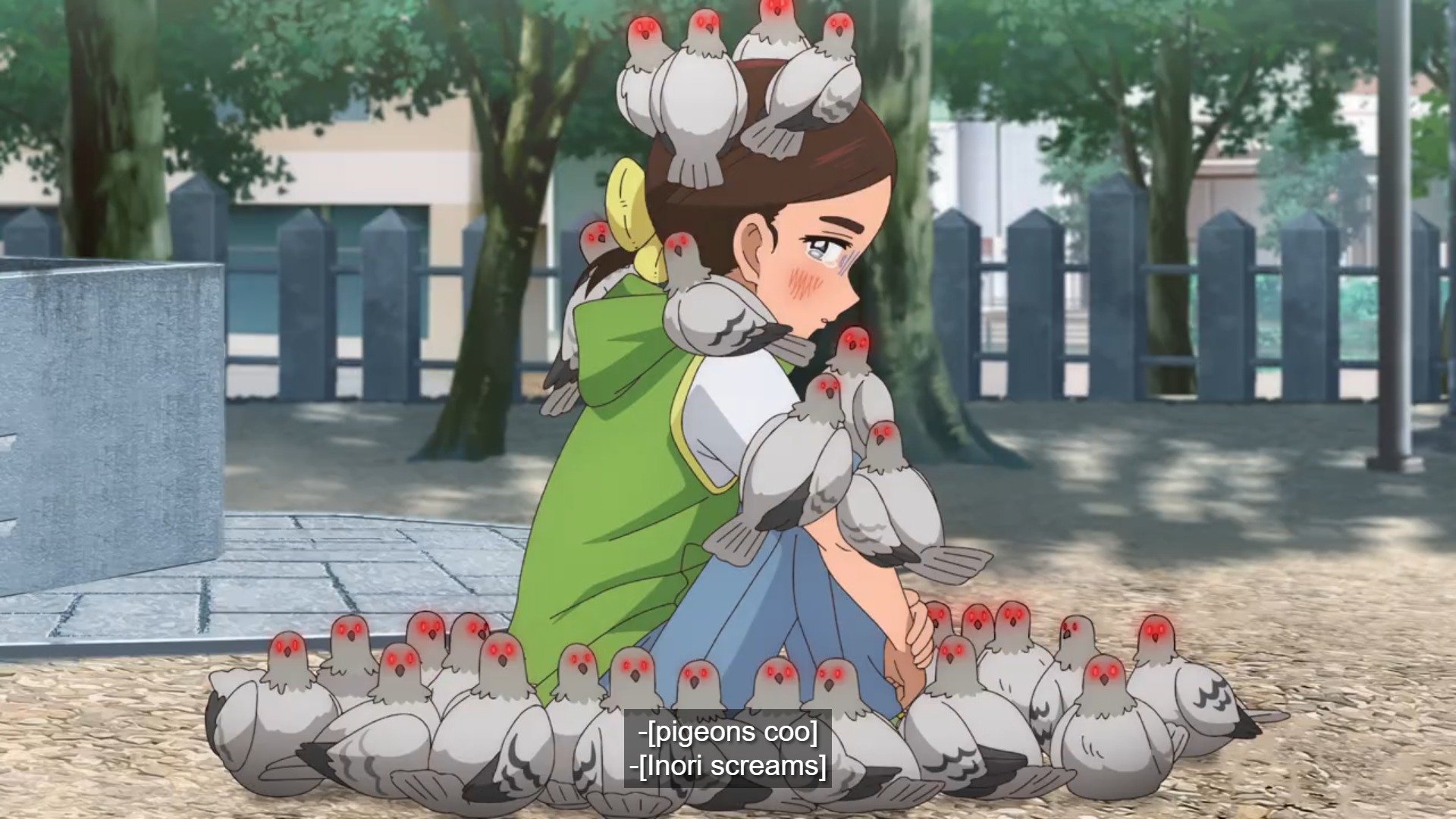Season aired: Winter 2025
Number of episodes: 13
Watched on: Hulu
Translated by: Emily Walton
Genres: Sports, Drama
Thoughts: The entire anime fanbase groaned in unison once it was announced that animation studio Engi was animating Medalist, one of the most acclaimed modern sports manga with real life celebrities and professional ice skaters openly fawning over the story. Studio Engi is infamous for butchering adaptations with strong source material like the recent Unnamed Memory series, which understandably had people mentally preparing themselves for the inevitable massacre of the ice skating series even before the studio could release a single PV – myself included. Having now finished Medalist’s first season, all I can say is I’m sorry for dooming the adaptation before the series had even come out. This is an adaptation made by the fans for the fans, and because of that, we see the best of the story.
Medalist is the story of Inori and Tsukasa. Tsukasa, an aspiring professional ice skater, has largely missed his chance to enter the professional and competitive world of ice skating. He started in his teens, missed the podium in the one rare opportunity he was given to compete, and now spends his days practicing hopelessly at the ice rink in search of a miracle. While Inori is his miracle, it isn’t in the way Tsukasa expected. A wilting girl of eleven years old, Inori has secretly practiced the sport without her mother’s permission or blessing. When Tsukasa meets Inori, he finds a kindred spirit in the aspiring young ice skater and realizes that while he missed his time, he now has a once in a lifetime opportunity to ensure another child doesn’t miss hers. Thus, the coach and student duo formed with the goal of entering Inori into the All-Japan Novice Championship and eventually getting her to national recognition.

Medalist is everything that I thought Yuri on Ice was going to be. While I usually make it a rule to not compare anime, I can’t help but point it out in this case. Yuri on Ice seems like a story about ice skating with a side dish of homoeroticism, but in reality, the anime is an unapologetic gay romance with a side dish of ice skating. In Medalist, the series is actually about ice skating, educating me on the terms, the process of ranking, and the unspoken monetary cost and time involved in professional ice skating. It also comes with a side dish of slight homoerotic tension between certain characters, but nothing romantic.
One of the biggest fears when Engi was announced to animate this series was how the studio was going to animate ice skating. The manga is famous for its incredible paneling depicting movement on the ice, with fans putting the panels together like a flip book to flawlessly prove how the ice skating movements were both fluid and accurate in depicting real ice skating. Engi, by this point, has a notorious reputation for producing subpar animation, so not only did the entire fanbase sigh in relief when the first ice skating scene played, but I actually leapt up with applause at seeing the end result.

This series has one of the best usages of CGI I have ever seen. The animation team at Engi used mocaps from professional ice skaters, both for adults and children, to accurately capture jumps, glides, and spins. When the music begins, and the character slides onto the rink, I feel like I’m watching a real life competition, where I’m worrying if a character will fall, noticing when their lands aren’t perfect, and admiring the fluid artistic movements of their hands and facial expressions. In fact, the CGI is so refined that their ice skates leave behind accurate and distinct scratches on the ice, a level of detail that I would’ve never even expected to be paid attention to in the first place.
That being said, Medalist isn’t only propped up by the ice skating CGI and beautiful animation. Tsukasa and Inori’s character journeys brought me to tears several times. I’m especially touched by Tsukasa, who instead of seeing Inori as someone for him to live vicariously through, like many adults accidentally do, he sees her as a talented and hardworking individual who deserves to thrive on her own. Inevitably, Tsukasa begins to transform on his own, becoming the person he wished he could have been in his youth. His kindness, optimism, and unrelenting determination continued to inspire me every week until the finale.
Inori’s character will no doubt reach younger audiences, but even as someone who is closer to Tsukasa’s age, I still find myself crying when Inori struggles through her self-doubt and grows to love herself as a person. I want the world for her, and Medalist rewards us by pacing her character development perfectly, ensuring she gradually grows in every episode without rushing through her ice skating training and journey.

Despite all these hard-hitting emotions, some of the series’ best moments are actually comedic. Yuki Hayashi pours his heart and soul into composing Medalist’s soundtrack, with emotional swells of orchestral strings easily tugging at the heartstrings. Yet, it’s his comedic scores that do the best work. In moments where Inori panics and is convinced she — this tiny eleven year old kid — somehow murdered someone, a clash of violin strings descend upon the scene, leaving me laughing even before I find out exactly how Inori reacts to innocently crashing into someone.
If there’s anything I wish the series did better it would be its 2D animation. Despite praising the CGI, this series isn’t filled from beginning to end with just ice skating routines, as that would also defeat the purpose of the story. When the characters are not ice skating, the usual 2D animation is at play, and it does lack the creativity, fluidity, and overall style that could’ve been applied. However, at the end of the day, it isn’t horrendous, which means it ultimately doesn’t distract or detract from the actual adaptation — it just leaves me with a “what if” idea on what a perfect adaptation could look like.
At the end of the first season, Inori tells herself good-bye — good-bye to a past self who had no friends, who saw no future, and who desperately dug through dirt to see a glimmer of hope for a world where she could actually like herself. Yet, most importantly, with her ode of farewell, she also proclaims her love for that past self, accurately noting that without her struggles and past experiences, the new confident and happy Inori wouldn’t exist today. To me, that is the pinnacle of Medalist, and for all its good and its bad, I love this anime.
Rating
Plot: 8 (Multiplier 3)
Characters: 8 (Multiplier 3)
Art/Animation: 7 (Multiplier 2)
Voice acting: 7
Soundtrack: 8.5
FINAL SCORE: 77.5
